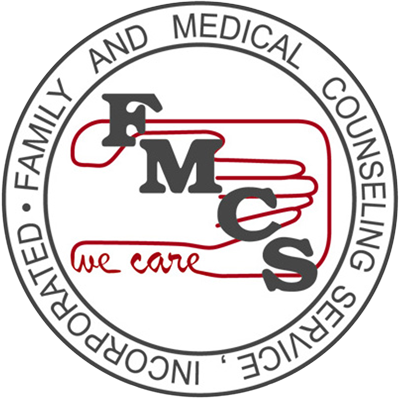
Family and Medical Counseling Services (FMCS)
Provider Interview
Family and Medical Counseling Services(FMCS) is a health center in Washington DC that strives to combine resources with complimentary area-based healthcare agencies in a service network that provides clients with maximum benefits in the most cost-effective manner.
FMCS receives technical assistance services from eHealthDC to support its participation in the District’s Promoting Interoperability (PI)/Meaningful Use EHR Incentive Program (MEIP) Program. In March, we sat down with Demetria Broadnax, FMCS’s Quality Improvement Coordinator, to talk about FMCS’s experience with the MEIP Program and eHealthDC.
“eHealthDC provides support to ensure the organization stays on task, does not miss deadlines throughout the year and is prepared for attestation.”
Demetria Broadnax
A Conversation with FMCS
Q: How have you found that using health IT and/or HIE tools has benefited your patients?
A: Health IT and health information exchange (HIE) have all been very beneficial. Before using these tools, FMCS had to rely on patients and providers to gain access to patient health records. Delays in obtaining provider signatures caused delays in the collection of information and necessary treatment.
The EHR and patient portals let providers and patients access records, and that leads to quicker and more efficient healthcare services. It is valuable to have a team approach to managing care.
Q: What kind of challenges has FMCS encountered in its pathway to use these tools?
A: One of the main struggles was meeting PI/MU Stage 3, as it relates to technology. It requires health data exchange from provider to provider and linking more providers electronically. The challenge is sharing information electronically when two providers, especially specialty providers, do not share the same EHR.
eHealthDC is constantly on the back-end motivating other providers to get onboard and performing analysis and reporting to see where the majority of referrals are going. This approach increases the number of providers who can share information more easily.
Q: Are there any informational sources you would recommend to other providers?
A: The CMS (Centers for Medicare & Medicaid Services) webpage and the DHCF (Department of Health Care Finance) SLR (State Level Registry) were useful for reading through Meaningful Use criteria, although, eHealthDC was FMCS’s primary resource.
Q: Are there best practices you would recommend to other organizations hoping to achieve MU?
A: Those responsible for the attestation process should review all MU requirements and guidelines in advance, pre-establish workflows and determine which of the requirements their organization will focus and improve on. Workflows are not always standardized across the practice and if you do not achieve certain targets, your organization may not be eligible to attest.
eHealthDC has been a valuable resource in running data to determine how FMCS is performing in specific areas, that way they can identify different workflows or trainings needed to ensure providers are documenting properly and that we have standardized workflows to follow up with patients accordingly.
Q: FMCS manages many programs, on top of its own improvement initiatives and efforts. How does the PI/MEIP Program fit into FMCS’ quality improvement and patient care strategies?
A: [eHealth DC] provides a lot of training and support. eHealthDC has helped FMCS get involved in other collaboratives, assisted in research regarding new initiatives and connected FMCS to them. Getting involved in other collaboratives has allowed FMCS to have greater insight into what other health center practices are doing and utilize their best practices.
Q: How has eHealthDC assisted you with health IT and/or HIE? How has that assistance benefited your organization and/or patients?
A: eHealthDC has been extremely helpful managing the timeline for submissions (for PI/MU attestation). There are constant email reminders, staff reaching out to identify ways they can support the organization and monthly standing calls to follow up. eHealthDC provides support to ensure the organization stays on task, does not miss deadlines throughout the year and is prepared for attestation.
Additionally, eHealthDC provides training to both providers and quality improvement staff on PI/MU measures. This is especially helpful for providers who are not familiar with the program or standards already.
